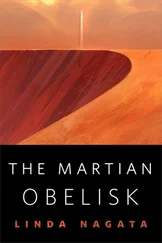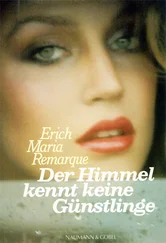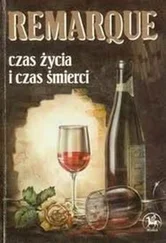We are sitting in a little room near the big assembly hall used by the inmates who are not under restraint. It is not really a dining room; there are bookcases in it, a pot with white geraniums, a few straight and easy chairs, and a round table. The Mother Superior has sent us a bottle of wine and we are waiting for the meal. Ten years ago I would never have dreamed that someday I would be drinking a bottle of wine with my father confessor—but then, neither would I have dreamed that I would someday kill men and be decorated for it instead of being hanged—nevertheless, that is what happened.
Bodendiek samples the wine. “A Schloss Reinhartshausener from the estate of Prince Heinrich von Preussen,” he remarks reverently. “The Mother Superior has sent us something very good. Do you know anything about wine?”
“Very little.”
“You ought to learn. Food and drink are gifts of God. They should be enjoyed and understood.”
“Death is surely a gift of God also,” I reply, glancing through the window into the dark garden. It has grown windy and the black treetops are tossing. “Ought one to enjoy and understand it too?”
Bodendiek looks at me with amusement over the rim of his wine glass. “For a Christian death is no problem. He doesn’t exactly have to enjoy it; but he can understand it without difficulty. Death is entrance into eternal life. There’s nothing to fear there. And for many it is a release.”
“Why?”
“A release from sickness, pain, loneliness, and misery.”
Bodendiek takes an appreciative sip and swirls it inside his red cheeks.
“I know,” I say. “Release from this earthly vale of tears. Why did God create it in the first place?”
At the moment Bodendiek does not look as though he were finding the earthly vale of tears hard to bear. He is comfortably replete and has spread the skirts of his priest’s robe over the arms of his chair so that they will not be creased by the weight of his ponderous bottom. Thus he sits, an expert on wine and the beyond, his glass firm in his hand.
“Why really did God create this earthly vale of tears?” I repeat. “Couldn’t He have admitted us at once to eternal life?”
Bodendiek shrugs his shoulders. “You can read about that in the Bible. Man, paradise, the fall—”
“The fall, the eviction from paradise, original sin, and with it the curse of one hundred thousand generations. The God of the longest wrath on record.”
“The God of forgiveness,” Bodendiek replies, holding his wine up to the light. “The God of love and of justice Who is always ready to forgive and Who has given His own son to redeem mankind.”
“Herr Vicar Bodendiek,” I say suddenly very angry, “why really did the God of love and justice make people so unequal? Why is one miserable and sick and another healthy and mean?”
“He who is humiliated here will be exalted in the next life. God is compensatory justice.”
“I’m not so sure of that,” I reply. “I knew a woman who had cancer for ten years, who survived six frightful operations, who was never without pain, and who finally doubted God when two of her children died. She gave up going to mass, to confession, and to communion, and according to the rules of the Church she died in a state of mortal sin. According to those same rules she is now burning for all eternity in the hell which the God of love created. Is that justice?”
Bodendiek looks for a while into his wine. “Was it your mother?” he asks then.
I stare at him. “What has that to do with it?”
“It was your mother, wasn’t it?”
I swallow. “Suppose it was my mother—”
He is silent. “A single second is enough to reconcile oneself with God,” he says then cautiously. “One second before death. A single thought. It doesn’t even have to be spoken.”
“I said that a couple of days ago too—to a woman who was in despair. But suppose the thought was not there?”
Bodendiek looks at me. “The Church has rules. She has rules for prevention and for education. God has none. God is love. Which of us can fathom His judgment?”
“Does He judge?”
“We call it so. It is love.”
“Love,” I say bitterly. “A love full of sadism. A love that torments people and makes them miserable and pretends to compensate for the horrible injustice of this world by the promise of an imaginary heaven.”
Bodendiek smiles. “Don’t you think that other people before you have thought about that too?”
“Yes, countless people. And smarter than I am.”
“I think so too,” Bodendiek replies comfortably.
“That doesn’t prevent me from doing it too.”
“Certainly not,” Bodendiek fills his glass. “Only do it thoroughly. Doubt is the other side of faith.”
I look at him. There he sits, a tower of security which nothing can shake. Behind his strong head stands the night, Isabelle’s unquiet night, which blows and tosses and is endless and full of unanswerable questions. Bodendiek, however, has an answer for everything.
The door opens. Our meal is brought in round dishes stacked on top of one another on a big tray. They fit into one another the way they do in hospitals. The kitchen nurse spreads a cloth over the table, lays out the knives, forks, and spoons and disappears. Bodendiek lifts the top dish. “What do we have tonight? Bouillon,” he says delicately. “Bouillon with marrow balls. First class! And red cabbage with Sauerbraten . A revelation!”
He fills his own plate and begins to eat. I am annoyed at myself for having argued with him and I feel his obvious superiority although that has nothing to do with the problem. He is superior because he is not seeking anything. He knows. But what does he really know? He can prove nothing. Nevertheless, he can play with me as he wishes.
The doctor comes in. It is not the director; it is the resident physician. “Will you eat with us?” Bodendiek asks. “In that case you’ll have to go to it. Otherwise there’ll be nothing left.”
The doctor shakes his head. “I haven’t time. There’s going to be a thunderstorm. That’s when the patients are always most restless.”
“There’s no sign of a storm.”
“Not yet. But it will come. The patients feel it in advance.
We’ve already had to put some of them in baths. It will be a difficult night”
Bodendiek divides the rest of the Sauerbraten between us. He takes the larger portion for himself. “All right, Doctor,” he says. “But at least have a glass of wine with us. It’s a 1915. A gift of God! Even for this young heathen here.”
He winks at me, and I would like to pour my Sauerbraten gravy down his slightly greasy collar. The doctor sits down with us and accepts a glass. The pale nurse puts her head through the door. “I won’t eat now, Nurse,” the doctor says. “Put a couple of sandwiches and a bottle of beer in my room.”
He is a man of about thirty-five, dark, with a narrow face, close-set eyes, and big, projecting ears. His name is Wernicke, Guido Wernicke, and he hates his first name as much as I hate Rolf.
“How is Fräulein Terhoven?” I ask.
“Terhoven? Oh yes—not especially well, unfortunately. Didn’t you notice anything today? Any change?”
“No. She was the same as ever. Perhaps a little excited, but you just said that was due to the thunderstorm.”
“We’ll see. You can never tell much in advance up here.”
Bodendiek laughs. “Certainly not. Not here.”
I look at him. What a rude Christian, I think. But then it occurs to me that he is a guardian of souls by profession; in such cases there is always some loss of sensibility in the interests of competence—just as with doctors, nurses, and tombstone salesmen.
I hear him conversing with Wernicke. Suddenly I have no more desire to eat and I get up and go to the window. Beyond the tossing, black treetops all at once there has risen a wall of pale-edged cloud. I stare out. All at once everything is very strange, and behind the familiar scene of the garden another, wilder one silently forces its way forward, pushing the old one aside like an empty husk. I recall Isabelle’s cry: “Where is my first face? My face before all the mirrors?” Yes, where is the first face of all? I think. The first landscape before it was turned into the landscape of our senses, into parkland and wood and house and man—where is Bodendiek’s face before it became Bodendiek, where is Wernicke’s before it had a name? Do we still know anything about that? Or are we caught in a net of concepts and words, of logic and deceptive reasoning, behind which lie the lonesome, glowing primeval fires to which we no longer have access because we have transformed them into utility and warmth, into kitchen fires and central heating and deceit and certainty and respectability and walls and, most of all, into a Turkish bath of sweaty philosophy and science? Where are they? Do they still stand, ever unseizable and pure and unattainable, behind life and death, before they became life and death for us, and are the only persons still close to them maybe those who now crouch in this house in their barred rooms and creep and stare and feel the thunderstorm in their blood? Where is the boundary between chaos and order and who can cross it and return, and if anyone could what would he then know of it? Would not the one wipe out the memory of the other? Who are the unbalanced, the branded, the excluded—we without boundaries, our reason, our orderly picture of the world or the others through whom chaos rages and flashes and who are exposed to infinity like rooms with three walls into which lightning strikes and storm and rain pour while we others sit proudly enclosed in rooms protected by four walls and doors and think we are superior because we have escaped from chaos? But what is chaos? And what is order? And who possesses them? And why? And who will ever escape?
Читать дальше








